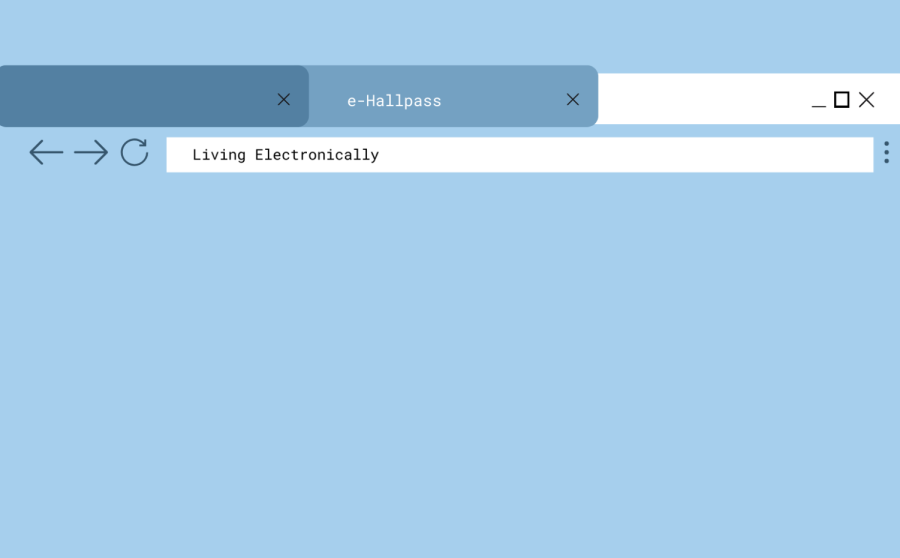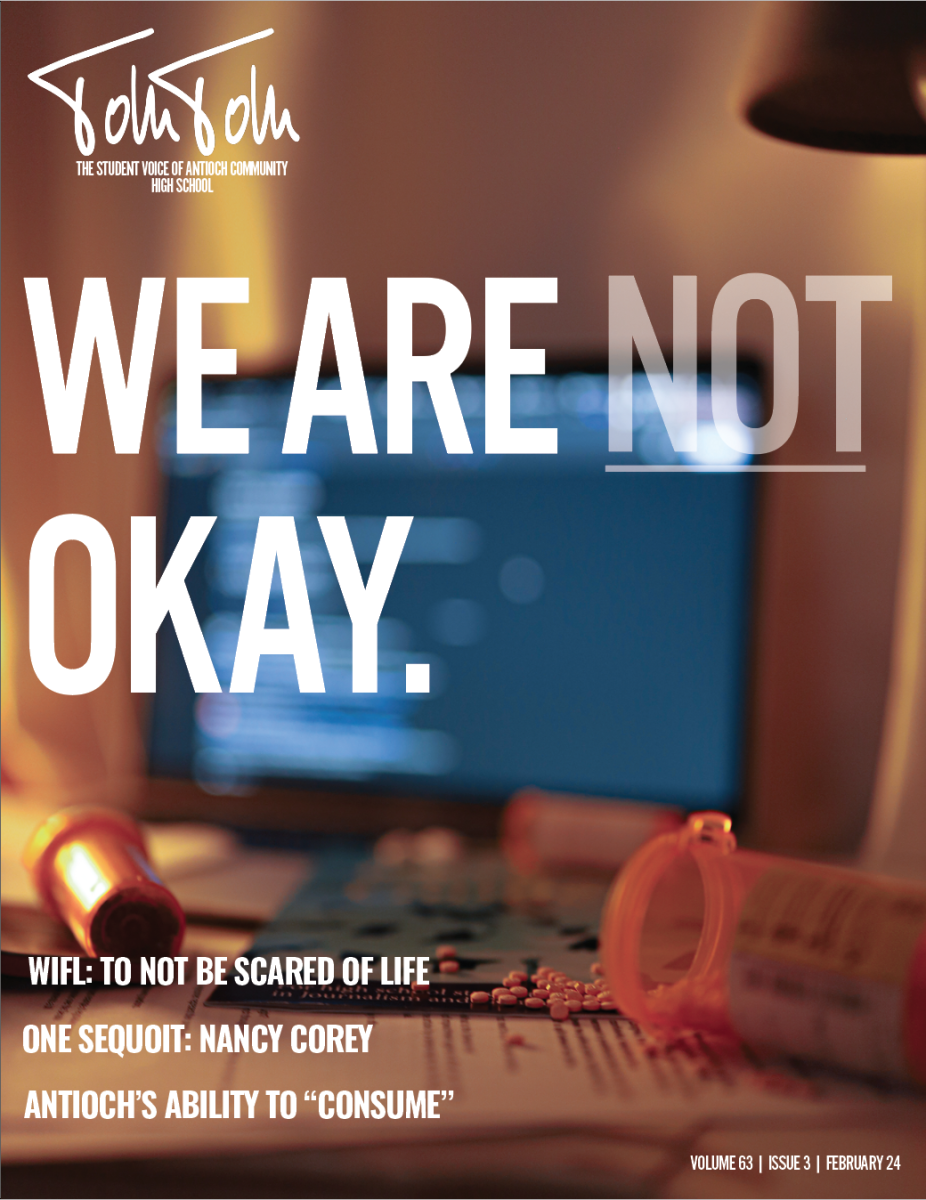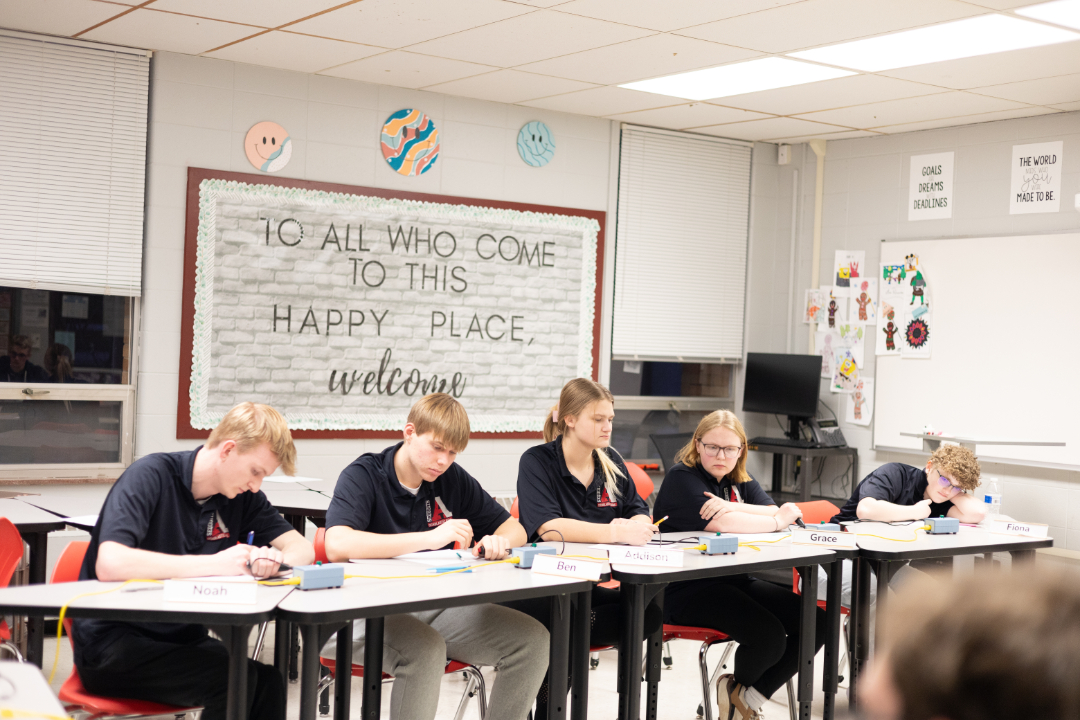Life has become more digital, and people rely on electronics daily, causing schools to transition from physical paper to electronics. At Antioch Community High School, electronic hall passes are becoming the new norm; starting next semester, E-Hallpass will be mandatory for the entire school.
Some staff has already incorporated E-Hallpass in class, such as English teacher Jessica Barnes, to familiarize students with the program.
“I’m personally a big fan of them,” Barnes said. “I think it’s more convenient for students to not have to carry a whole pass or carry the actual book.”
The conversation of incorporating E-Hallpass started per the request of teachers last year. Then, the technology department, including education technology specialist Kyle Bush, researched what program would be best, ultimately deciding E-Hallpass was the right fit.
During summer school, E-Hallpass was tested on the students with the intent of correcting all the bugs and forging the program to be more efficient for ACHS.
While some teachers may be on board, students have mixed responses. Some freshmen used E-Hallpass in middle school and are familiar with the program, whereas upperclassmen, like junior Kayla Jackel, are used to the student handbooks.
“I think it’s less of a distraction pulling out your planner than pulling out your whole Chromebook,” Jackel said.
When a student needs to go anywhere in the building, instead of writing it in a passbook, they will use their Chromebooks. On the top left corner of Google, under ACHS Student Bookmarks, there is a link to E-Hallpass.
The student selects a teacher and destination, then submits the pass request; the teacher receives a notification that they can either accept or decline. The passes are timed, but there is currently no time limit or limit on how many passes a student has per day. However, if a student abuses this system, they could be flagged to be monitored by security.
Some benefits the digital hall passes bring are convenience, safety and accountability. Administrators have a view at all times of who is in the hall and where they are going. In the event of danger, this can aid the school in keeping all students as safe as possible.
“It’s nice to have a big bird’s eye view of where students are,” Bush said. “As a parent, if I called my kids’ school and the people in the office said they might be in class, but they might not, that makes me really nervous.”
For the students, they will always have their Chromebooks and will never run out of space as they may in the paper passbooks. For the teachers, there is less disruption during class when a student needs to leave as well.
While there are immense benefits with the electronic passes, there are a few drawbacks too—the internet may not be working, and in gym class, students do not have Chromebooks on them. Without their Chromebooks, students cannot request a pass. Dean of Students Kurt Sooley highlights the concern for learning how to work the program.
“You have people like me that are not the best with technology,” Sooley said. “So understanding that we’re all using this, there’s going to be that learning curve and making sure that we all work through that learning curve together.”
People’s daily lives revolve around electronics; however, that is not necessarily unfavorable. There will always be traditional methods, but there are also more modern methods, including the incorporation of E-HallPass.
















